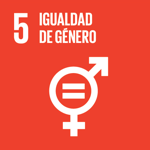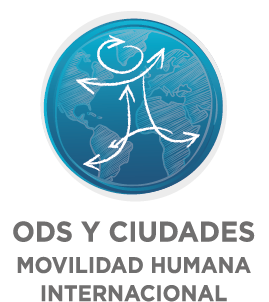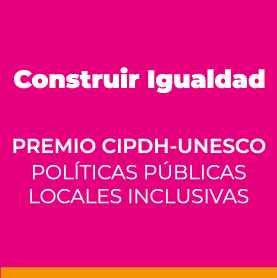
- Region
- Latin America and the Caribbean
- Range of Demographic Size
- 1,000,000 inhabitants or more (metropolis)

5.1 End all forms of discrimination against all women and girls everywhere in the world.
5.2 Eliminate all forms of violence against all women and girls in the public and private spheres, including trafficking and sexual and other types of exploitation.
5.3 Eliminate all harmful practices, such as child, early and forced marriage and female genital mutilation.
5.4 Recognize and value unpaid care and domestic work through the provision of public services, infrastructure and social protection policies and the promotion of shared responsibility within the household and the family as nationally appropriate.
5.5 Ensure women’s full and effective participation and equal opportunities for leadership at all levels of decision-making in political, economic and public life.
5.a Undertake reforms to give women equal rights to economic resources, as well as access to ownership and control over land and other forms of property, financial services, inheritance and natural resources, in accordance with national laws.
5.b Enhance the use of enabling technology, in particular information and communications technology, to promote the empowerment of women.
Additional Protocol to the American Convention on Human Rights in economic, social and cultural rights (San Salvador Protocol).
• Inter-American Convention on the Prevention, Punishment, and Eradication of Violence against Women (Convention of Belém do Pará)
Convention on the Elimination of all Forms of Discrimination Against Women (CEDAW).
Declaration on the Elimination of Violence Against Women.
Summary
The Great Agreement for Equal Treatment (GATI) is an initiative by the Council for the Prevention and Elimination of Discrimination in Mexico City (COPRED) that seeks to include the private sector in the fight against discrimination and prompt a human rights, inclusion, and nondiscrimination perspective across the companies subscribing to it.
Its aim is to recognize and support those companies that take a step forward beyond their legal obligations with regard to diversity and inclusion and that seek to be a referent in the promotion and respect of the right to nondiscrimination within their own spaces and spheres of competence.
Since COPRED’s creation, near 80% of discrimination cases addressed by the council are related to the workplace. Furthermore, according to data from the latest Survey on Discrimination in Mexico City (EDIS 2021), which measures the level of perception of discrimination among persons 18 years old or older living in the city, the phenomenon of discrimination is perceived by local citizens with a score of 7.5 in a scale of 0–10, where 10 means high discrimination, and points out that the main realm for discrimination is the workplace (36.9%).
Consequently, the GATI—whose precedents are the Good Business Practice Forum, held between 2014 and 2017, and the placement of a “Plaque for Nondiscrimination” in companies and commercial establishments, which was later made mandatory with the amendment of article 10 of the Law of Commercial Establishments—became one the most significant strategies of COPRED to counteract the phenomenon of nondiscrimination in companies.
After almost six years of efforts, this strategy has managed to establish itself as a local leading resource. Proof of this is the fact that companies that are not part of the GATI request lectures and workshops on a variety of subjects. To date, eight special workshops have been held on equality and nondiscrimination, and approximately more than thirty lectures on diversity and equal opportunity employment. Other subjects have been addressed as well, such as gender discrimination, corporate racism, LGBTI+ discrimination, and disabilities, among other issues related to historically discriminated groups.
There are currently 45 companies signatory to the GATI representing at least 130,000 workers who benefit from these policies, among them individuals from priority assistance groups referred to in the Political Constitution of Mexico City. The signatory companies are AMEDIRH; Accenture; Dow Química; Productos Medix; Scotiabank; HSBC; Fandeli; Bufete de Refrigeración Industrial; Stefanini; Ford; AR Consultoría; Altamirano, Mendieta, Bravo y Asociados; AT&T; Logen; Yoliztli Artesanal; Unilever; Talengo; Pentafonint S.A. de C.V.; Tyco Electronics; Sekura; Timeout; Pfizer; EY; BPO&N; SODEXO Beneficios e Incentivos; Sodexo On-Site; Grupo Farmacias; Bodas LGBTTTI; Lubrizol; Daimler; BASF; Western Union; Novartis; Fibra UNO (FUNO); Programación de Recursos; Gabscon; KPMG; Colgate Palmolive; Ejercicio Vital; Nielsen; Gilead; Heroica Tattoo; Conekta; Kavak; y S&P Global.
GATI has forged alliances that promote a nondiscrimination culture and counteract the normalization of stigmas, stereotypes, and prejudices that negatively affect the realm of work. Such alliances resulted in the creation of a network of companies headed by COPRED, where diversity and inclusion strategies are shared and windows of opportunity are identified for politics of inclusion. In 2021, as a result of GATI’s advancements, a renewed platform was presented for corporate outreach in the fight against discrimination.
Implementation Date:
Start: 09 / 1 / 2016
End: End: Currently in force
Social/citizen participation
Education and training
- Email: internacional.copred@gmail.com
- Web: https://www.copred.cdmx.gob.mx/
- Telephone: (Español) + 52 55 128675
- Social Network:
Instrumentos

5.1 End all forms of discrimination against all women and girls everywhere in the world.
5.2 Eliminate all forms of violence against all women and girls in the public and private spheres, including trafficking and sexual and other types of exploitation.
5.3 Eliminate all harmful practices, such as child, early and forced marriage and female genital mutilation.
5.4 Recognize and value unpaid care and domestic work through the provision of public services, infrastructure and social protection policies and the promotion of shared responsibility within the household and the family as nationally appropriate.
5.5 Ensure women’s full and effective participation and equal opportunities for leadership at all levels of decision-making in political, economic and public life.
5.a Undertake reforms to give women equal rights to economic resources, as well as access to ownership and control over land and other forms of property, financial services, inheritance and natural resources, in accordance with national laws.
5.b Enhance the use of enabling technology, in particular information and communications technology, to promote the empowerment of women.
Additional Protocol to the American Convention on Human Rights in economic, social and cultural rights (San Salvador Protocol).
• Inter-American Convention on the Prevention, Punishment, and Eradication of Violence against Women (Convention of Belém do Pará)
Convention on the Elimination of all Forms of Discrimination Against Women (CEDAW).
Declaration on the Elimination of Violence Against Women.
Location
- Region
- Latin America and the Caribbean
- Range of Demographic Size
- 1,000,000 inhabitants or more (metropolis)
Contact details
- Email: internacional.copred@gmail.com
- Web: https://www.copred.cdmx.gob.mx/
- Telephone: (Español) + 52 55 128675
- Social network:



